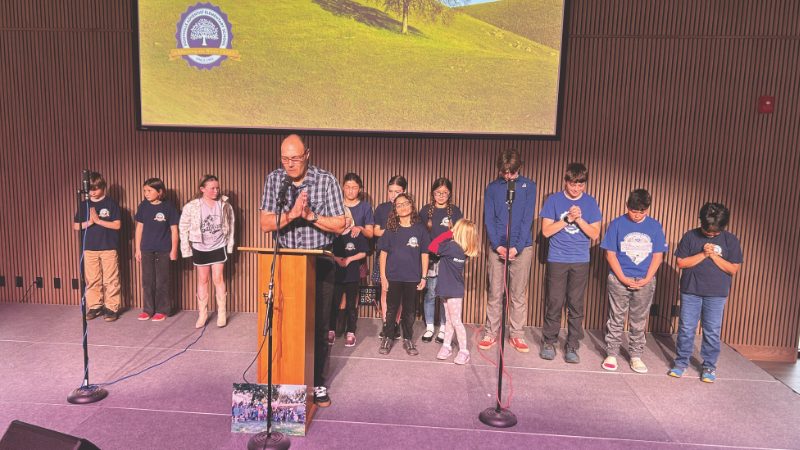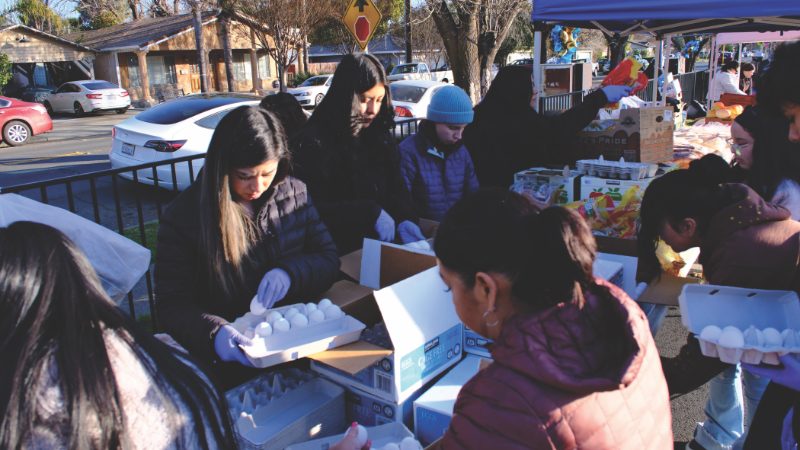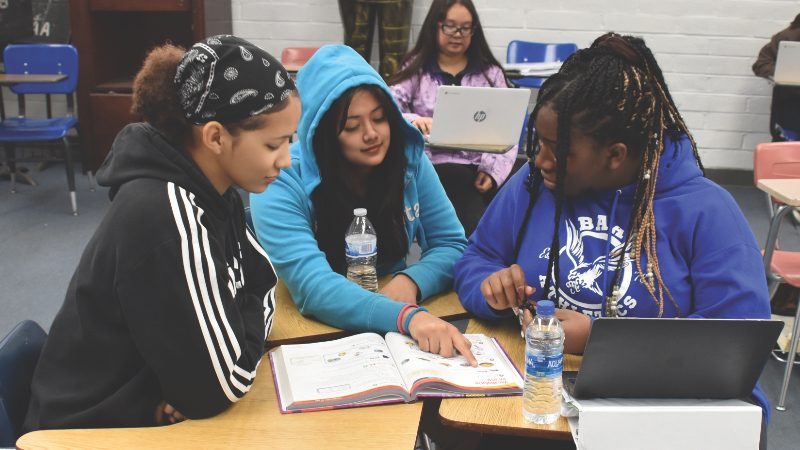War to this generation is distant—an event that occurs on foreign soil. Once, not too long ago, Ukrainians felt the same. But now Ukrainians have been abruptly awoken to the evil realities of war, and millions of refugees have evacuated their homes.
Recently, a group of American physicians worked side by side with native Ukraine healthcare professionals from the Angelia Clinic, a Loma Linda University partner that had evacuated the Ukraine capital, Kyiv. We went to offer any humanitarian medical assistance we could, even while being distracted by missile air raid sirens in the distance.

This was our second mission to Ukraine in two months. Our first mission’s goal was to deliver critical food and water to the refugees on the roads and assess where we could help medically. The second mission was solely medically focused. When I arrived back from the first mission, I contacted Loma Linda Health President Richard Hart and alerted him to the medical needs of the crisis. Dr. Hart directed me to Yurii Bondarenko, the director of the Angelia Clinic, and Chief Medical Officer Serhi Serdenyuk.
When the Angelia Clinic evacuated from Kyiv, they set up temporary operations in the southwestern city of Chernivtsi, Ukraine. Dr. Yurii and Dr. Serhi adapted to the needs of the country and transformed their clinic into mobile medical vans, which allowed them to deliver medical care to Ukrainian cities devastated by war.
The American team of physicians who were part of the second mission trip included Orson Anderson and William Guthrie (family practice), John Mason (emergency medicine), and myself, Troy Anderson (neurology and sleep medicine specialist). We worked side by side with the Angelia clinic’s physicians, who included Tatiana Zubkova (gynecology) and Serhi Serdenyuk (family practice and chiropractor). In addition to the physicians, the medical team included nurses, laboratory technicians, phlebotomists, ultrasound technicians, pastors, administrators, translators, drivers, and other miscellaneous volunteers. As a team, we provided 1,076 medical services throughout the cities of Chernivtsi, Kremenents, Zhytomir, and Vinnitsya.

Beyond medical care, we gave the people we met the greatest medicine of all: validation, friendship, warm hugs, and prayer. Just letting them know they weren’t alone and that they had friends across the ocean who cared about them brought comfort to many. The medical diagnoses varied from one patient to another, but the toll of the stress of the war on the human soul was common to all patients we met: insomnia, panic attacks, depression, anxiety, mood outbursts, and post-traumatic stress symptoms. Added to the strain of war was the separation of families. Most families were split apart as men were ordered by the government to stay in the country and wives and children left for the safety of other countries.
On Sabbath, 13 people answered my altar call to baptism. It brings me joy to think that perhaps there were countless other souls who were equally touched by the medical team throughout the week. That afternoon we toured the countryside and saw the evidence of war all around us in the destroyed apartment buildings, demolished tanks, and car graveyards. We took time to pray for the victims and for the country, praying that the war would come to an end according to God’s will.
As I ponder the unforgettable bonding experiences I had with my new brothers and sisters in Ukraine, I realize we share a common bond deeper and more special than anything I’ve experienced before. This was evidenced by the many tears shed when we departed and the WhatsApp messaging that has occurred since. We are planning another mission next summer.
Our team is challenged by the idea that we are ambassadors of Christ who are called to love our fellow man just as Christ loved us and called us to act to help the weak. As Christian physicians, we are called to use our gift of healing to help the suffering. Evil will exist until Christ’s second return. Until then, may we be inspired to help each other through life’s suffering no matter the risk, just as Christ acted in love for us.
____________________
By Troy Anderson






